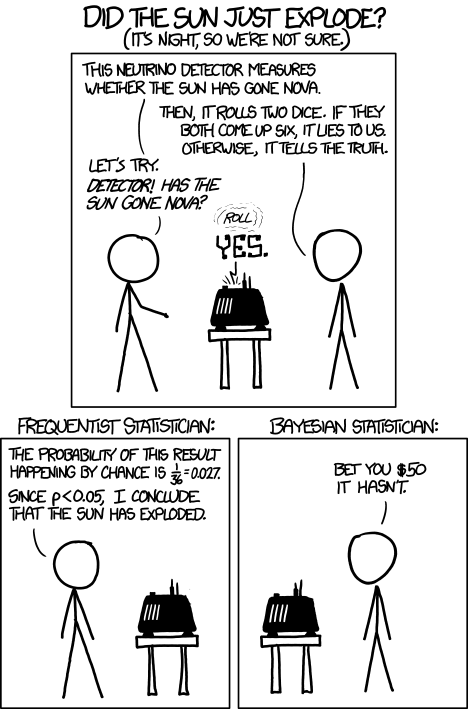Frequentists make predictions on underlying truths of the experiment using only data from the current experiment.
Bayesians take advantage of past knowledge of similar experiments (a “prior”), along with current experiment data to make an experiment conclusion.
While Bayesian computations are more complex, the answers are actually more aligned with how humans think. However, the Bayesian approach can’t keep you from picking the wrong variables for the wrong experiment.
“A Bayesian is one who, vaguely expecting a horse, and catching a glimpse of a donkey, strongly believes he has seen a mule.” – Stephen Senn, Statistician

Bayesian vs Frequentist Approaches to Experiments
